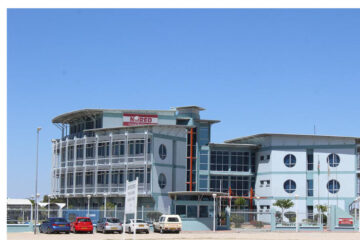Hertta-Maria Amutenja
Oshakati Intermediate Hospital’s psychiatric ward 16, which is designed to accommodate 60 patients with mental health problems, is consistently accommodating up to 200 patients at a time.
The Executive Director of the Ministry of Health and Social Services Ben Nangombe, confirmed this yesterday.
In an interview with the Windhoek Observer, Nangombe highlighted the urgent need to establish mental health wards at various health facilities across the country.
He said Namibia currently has only two institutions providing mental health services, which are the Windhoek Central Hospital Mental Health Unit with a capacity of 220 beds and the one in Oshakati.
Despite the severe overcrowding at the Oshakati facility, Nangombe gave the assurance that the institution does not face significant medical challenges.
“In terms of medication, essential mental health medications are readily available at most health facilities throughout the country, and any shortages are promptly addressed,” he stated.
Last month, Moges Admassu, the head and psychiatric specialist at Oshakati Hospital, while addressing the Parliamentary Standing Committee on Gender Equality, Social Development, and Family Affairs, expressed concerns about the unit’s persistent overcrowding. Revealed that the bed capacity is consistently over 100 percent full, with some patients sometimes forced to sleep on the floor.
In 2008, September was declared National Suicide Prevention Month, to remember family and friends who took their own lives. Therefore, the month of September is regarded as the time to support and acknowledge those affected, raise awareness and enact preventative care for people struggling with suicidal ideation.
Minister of Health and Social Service, Kalumbi Shangula, has recently emphasised that suicide has emerged as a major public health concern in Namibia, and called for urgent action to prevent further increases in suicide rates.
“Mental health conditions such as depression, bipolar disorder and schizophrenia are associated with a heightened risk of suicide,” he stated during the 2023 World Suicide Prevention Day commemoration in Windhoek.
The Minister pointed out that the lack of awareness surrounding suicide prevention is a major public health concern across the country.
He highlighted that contributing factors to suicide, include financial problems, relationship break-ups, substance abuse, chronic health issues, persistent pain or physical disability, feelings of isolation or helplessness, and negative life events.
According to him, statistics spanning from August 2022 to June 2023, Namibia has tragically lost 623 lives to suicide, with 511 (82 percent) being males and 92 (15 percent) being females. Among this number, 20 (3.2 percent) are from the youth demographic.
This translates to a suicide death rate of 21 per 100,000 among the population, with the highest incidence occurring in the Omusati, Oshikoto and Hardap Regions.
The Minister stressed that suicides are preventable but require dedicated efforts from all sectors of society.
He called for comprehensive and integrated initiatives to combat the stigma associated with suicide and pointed out that individuals with suicidal thoughts often refrain from seeking help due to fears of judgment, stigmatization or labelling, particularly among men, where discussing and admitting to such thoughts is perceived as a sign of weakness.




